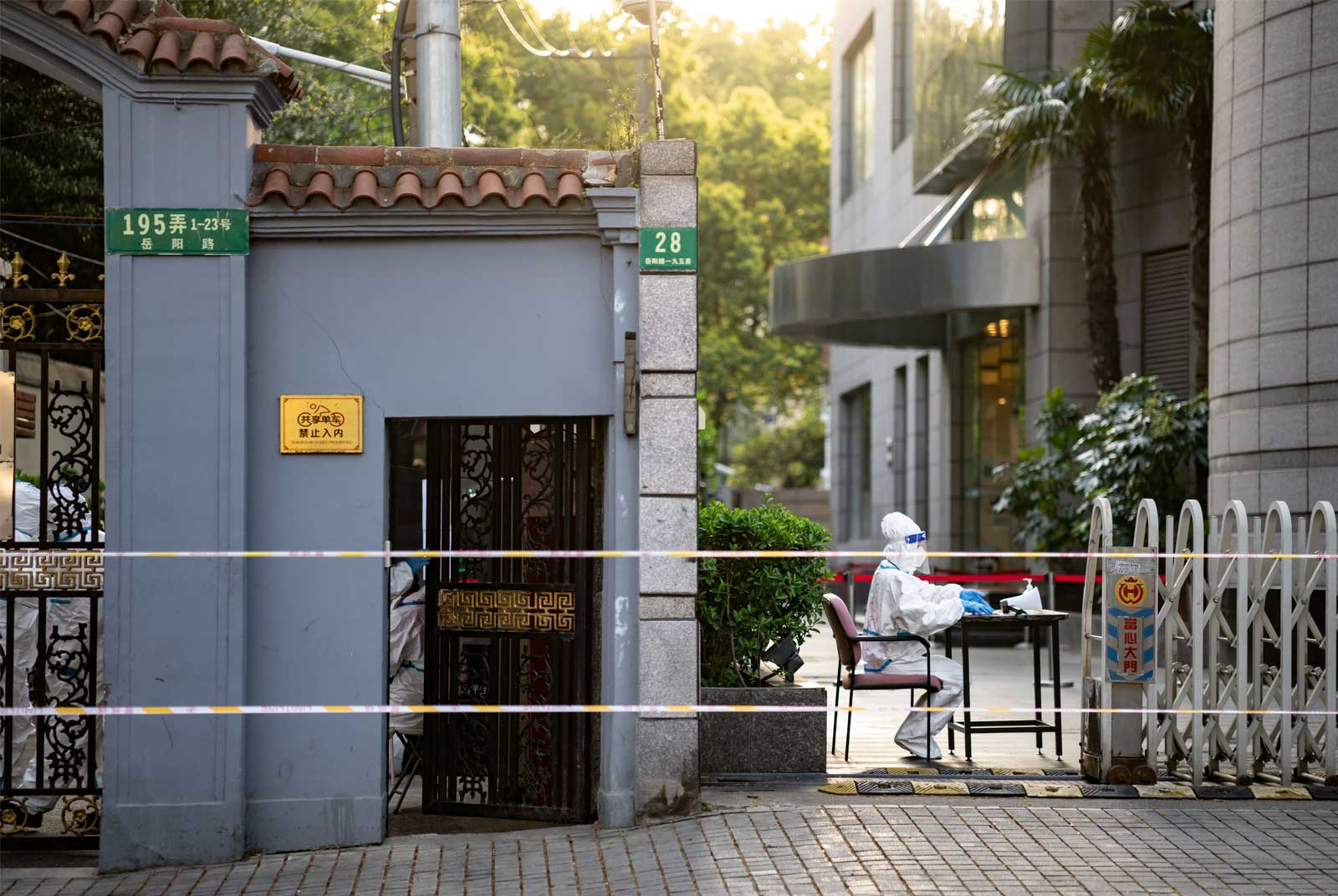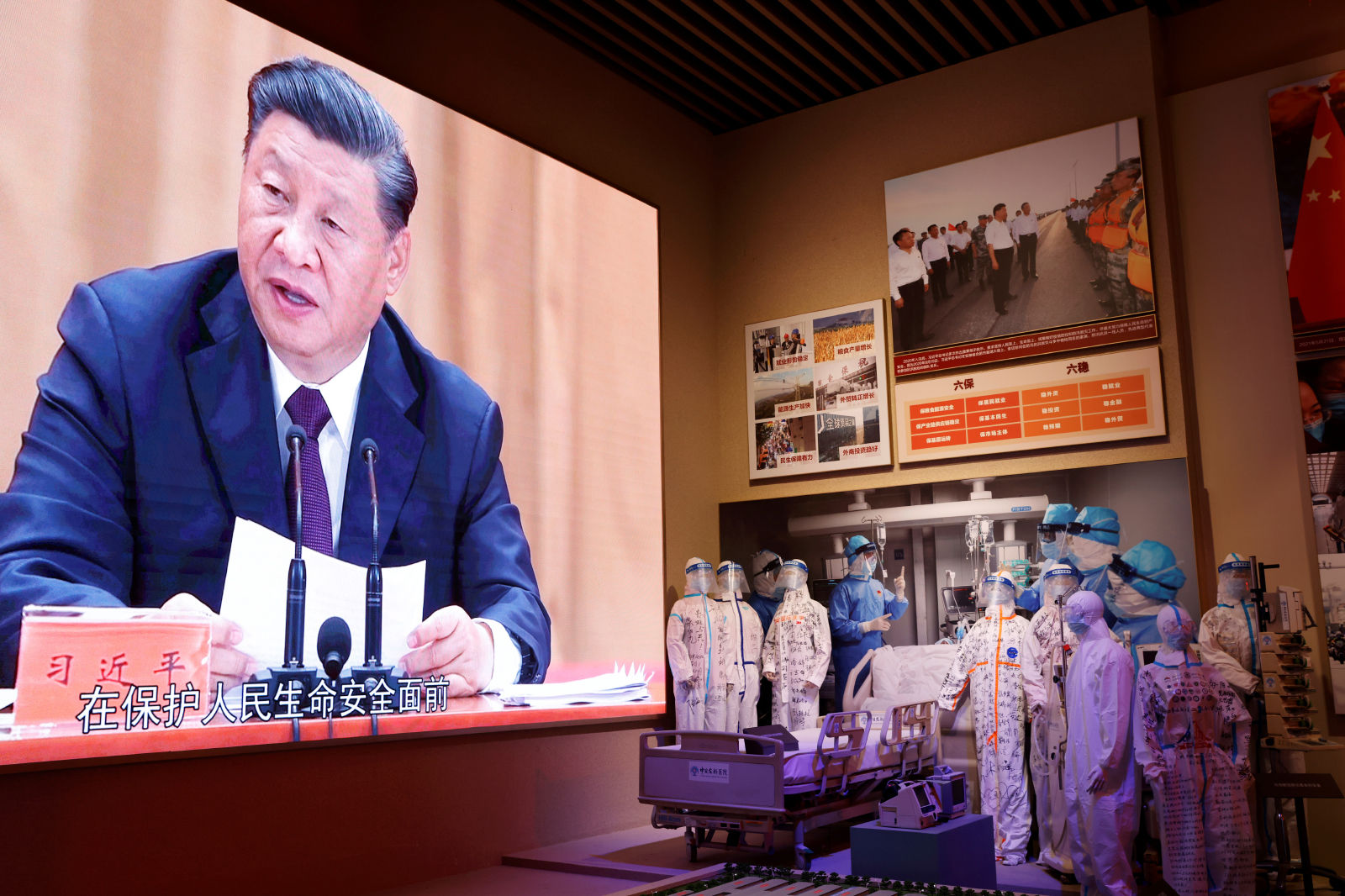What price has Shanghai paid for China’s zero-COVID policy?

Source:Shutterstock
China’s manufacturing hubs – Shanghai, Kunshan and Zhengzhou – are under lockdown. The country’s GDP is expected to grow by less than 4 percent this year, the second-worst performance in 32 years, and is bound to drag down the world economy. How much more will be sacrificed for the sake of zero-COVID?
Views
What price has Shanghai paid for China’s zero-COVID policy?
By Lin Chia-yi, Lu Pei-huaFrom CommonWealth Magazine (vol. 747 )
Shanghai was originally supposed to be locked down for four days, but the lockdown has so far lasted more than 10 times that long. And it is not yet known just when it will end.
By the end of April, Shanghai was registering about 10,000 new confirmed cases of coronavirus infection a day, and deaths from the infectious disease soared to between 40 and 50 per day. At the same time the capital of Beijing was preparing for its own lockdown.
And it is not just Shanghai; places all over China have been locked down. Figures compiled by Commonwealth show that as of April 25 at least 40 cities across China had implemented lockdowns of various degrees, affecting nearly 170 million people. This includes large cities such as Harbin and Hangzhou with populations of more than 10 million people.
Zhengzhou, the capital of Henan Province, where many Taiwanese-invested businesses are based, has just joined the ranks.
On April 23, the Zhengzhou City Government registered just two new confirmed COVID cases and another five asymptomatic coronavirus infections for the day. But the city nonetheless suddenly ordered the Zhengzhou Airport Economic Zone, where Apple supplier Foxconn and other electronics manufacturers are based, to implement seven days of zone-wide “static management”, causing concerns about a possible disruption of the Apple supply chain. Under static management, social gatherings are banned, but people can leave their homes to go to work after presenting negative nucleic acid test results.
“Recently, more and more regions have immediately tightened pandemic prevention measures after confirming infections,” says Hu Yifang, chief China economist with UBS. In contrast to Shanghai, where the lockdown has lasted much longer than anyone anticipated, Shenzhen and Guangzhou in southern China relaxed restrictions after seven and three days, respectively. The biggest lesson Chinese municipalities have learned during the pandemic is that, as long as the dynamic zero-COVID policy remains in place, “the virus must be suppressed, or else we need to lock down as soon as it starts.”
The economy: Growth doomed to slow down
While the verdict is still out as to whether lockdowns can contain the spread of the virus, it is obvious that they stifle the economy.
According to statistics by Gavekal-Dragonomics Research, which provides a twice-weekly analysis of the Chinese economy, as of April 11, 87 of China’s 100 largest cities, representing 70 percent of GDP, had implemented lockdown measures of various degrees. This means that 60 percent to 70 percent of the country’s GDP is affected.
Nomura Research Institute (NRI), for its part, estimates that nearly half of China’s GDP, 7.2 trillion renminbi, is affected. They expect a growth rate of just 3.9 percent for 2022, which is well below the 5 percent growth rate of the latest World Bank forecast.
“We believe that the global market still underestimates the impact of Chinese growth slowing down,” says Lu Ting, NRI’s chief China economist. “It’s because international attention is focused on the Russian-Ukrainian war and the U.S. Federal Reserve System interest rate hikes.”
Should the Nomura forecast materialize, the Chinese economy would deliver its second-worst performance in 32 years. Only right after the outbreak of the COVID-19 pandemic in 2000 was the growth rate lower, at 2.2 percent.
The Chinese lockdowns and the war between Russia and Ukraine have become the biggest black swans for high-cost supply chains this year.
Liu Meng-chun, director of the First Research Division (Chinese economy) of the Chung-Hua Institution of Economic Research, notes that decoupling from the Chinese economy is proving harder than many thought.
“People have been clamoring for a decoupling of the U.S. and China for so many years now. The Shanghai lockdown amounts to a pressure test for the entire globe. As it turns out, China, as the world’s manufacturing base, still has a very powerful role,” explains Liu.
China’s internal stress test takes place in Shanghai, the nation’s commercial and financial center. Since the metropolis’ 25 million inhabitants were locked into their homes, often left without enough to eat, the public’s trust in the government has hit rock bottom.
Shanghai resident Huang Yu-tong, a 33-year-old expecting mother who hails from Taiwan, is being held captive in her own home. The door to her apartment has been sealed with tape. When group buy provisions arrive at the apartment building, she needs to lower a bucket on a rope from the window to collect her groceries.
In the past, living in Shanghai meant annual pay raises of up to 30 percent. But now it means being locked up at home alone, three months pregnant, for two months without an end in sight.
While countries around the globe are gradually relaxing pandemic-related restrictions, China continues its zero-COVID policy and is not willing to approve foreign vaccines, making it the odd one out.
Zero-COVID does not work, but China won’t relent
To be fair, China has objective reasons for maintaining the zero-COVID approach. Presently, across the country 50 million elderly people are still completely unvaccinated. On top of that, China’s home-grown vaccine against the coronavirus has proven less effective than foreign vaccines. Once the pandemic spreads, doctors and nurses working at the frontlines are bound to be infected too, which could quickly push the healthcare system to its limits.
 (Source: TPG)
(Source: TPG)
Moreover, zero-COVID has meanwhile also become an ideological issue.
Tsai Wen-hsuan, research fellow with the Institute of Political Science at Academia Sinica, believes that China insists on the policy because the pandemic during the past two years has bolstered the position of Chinese President Xi Jinping.
During the past year, China’s state-run television channel CCTV has reported global coronavirus infections day in, day out, always emphasizing that western countries are forced to coexist with the virus while China is able to contain it. “It is out of the question for China to admit that ‘zero tolerance’ was wrong,” notes Tsai.
Michael Hirson, practice head, China and Northeast Asia with the Eurasia Group, had already predicted at the beginning of the year that China’s zero-COVID policy would become the greatest risk globally. In an interview with CommonWealth Magazine, Hirson flatly stated that the policy is useless, but that China will stick to it.
Hirson believes that Xi needs to maintain a stable political situation before the 20th National Congress of the Chinese Communist Party in the fall. Since the zero-COVID policy has been successful during the past two years, a policy change has become impossible. “To ensure that the new personnel line-up is completely stable, a policy turnaround has to wait at least until after the 20th party congress if not until after the annual session of the National People’s Congress in March next year,” notes Hirson.
During the past two years, several smaller cities in China’s hinterland have experienced even more severe lockdowns. According to Chinese media reports the city of Ruili in Yunnan Province near the border to Myanmar has seen repeated lockdowns totaling 160 days. As a result, residents have reportedly left the city in droves, with only half of the population remaining.
The Chinese authorities, which derive their political legitimacy from “maintaining stability”, find themselves in a dilemma: If lockdowns continue, the people won’t be able to earn a living, and commodity prices will soar, potentially triggering social unrest. But if the pandemic is allowed to run its course, the healthcare system might become overwhelmed, resulting in countless deaths, which again could fuel public discontent.
“They will hold out another one or two quarters and then probably give it (zero-Covid) up,” predicts Lin Hsien-chun, president of Synergy Intelligent Logistics Corporation. Lin draws his conclusions from the large amount of warehouse and distribution data held by the company, which belongs to Taiwan’s Synnex Group.
Lin takes a pragmatic approach, arguing that if the policy is kept in place much longer, manufacturers won’t be able to sustain their businesses, and we will see further restructuring of global supply chains. He warns that the lockdowns will fuel inflation, which will aggravate social problems in the longer run.
The lockdown measures have caused the Chinese economy to slow down earlier than expected.
Foreign Affairs diagnosed in a recent article that the age of slow growth is unfolding in China. It cited three possible growth drivers: business investment, household and government consumption, and trade surpluses.
Pointing to the structural problems present in all three areas, the article concluded “there is no basis for the belief that China, or any country, can deliver high, politically determined growth targets in perpetuity without completing basic fiscal, financial, and other market reforms.” It warned against the belief that “Chinese growth is forever” and urged Western leaders to address the global economic risks that could result from a Chinese downturn.
China-based foreign enterprises losing patience
In Shanghai, China’s largest conurbation, patience is running out in the foreign community as the lockdown drags on.
“China, you use zero clearance, so I apply zero clearance to China,” says a high-level manager of a foreign electronics firm who has lived in Shanghai for more than a decade. He is frustrated that the strict restrictions remain in place despite the repeated lobbying by foreign companies and chambers of commerce during the past weeks for a more relaxed approach. Many foreign nationals are now mulling leaving, thinking, “This is your choice; I have mine.”
 (Source: Shutterstock)
(Source: Shutterstock)
What about the Shanghai residents who cannot leave?
Some are concerned about the country’s long-term future. “If again nothing changes after this is over, then the long-term damage will be worse than in 1989 (the Tiananmen Square incident), it might have an impact for another 30 years,” notes Yi Xianfeng, a well-known finance journalist from Shanghai.
Back in 1989, China’s elite chose to keep silent and obey the authorities. After such a severe incident, it takes a long time for society to heal and for trust to be restored. Yi believes that China’s intellectuals need to take a stand now.
But Yi still harbors the typical Shanghainese pride. “As for the big direction, I am optimistic. No matter how tragic a price it has to pay, Shanghai will recover. I don’t believe that anyone can wipe this city out.”
Have you read?
♦ Should Taiwan put its future in U.S. hands?
♦ Why the Chinese military has increased activity near Taiwan
♦ Taiwan’s COVID-19 Outbreak
Translated by Susanne Ganz
Edited by TC Lin
Uploaded by Penny Chiang






